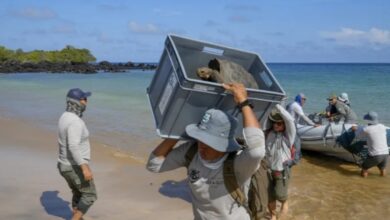The crisis of commodities: a blessing in disguise
Listen this article
Growth in Latin America is threatened by low prices of commodities, but this can be a great opportunity

At the beginning of 2018, the economic environment in Latin America gave reasons to be optimistic, with the barrel of oil trading above $70 dollars, in the case of Brent, analysts could hardly bet against a healthy growth for the region.
Leer en español: La crisis de los commodities: una bendición disfrazada
The optimism of a year ago, however, carried two assumptions. One was that the price of a barrel of oil was going to keep rising, or in the worst case it would remain stable. This did not happen, the barrel of Brent closed the year 19.5% below its value in January.
Another assumption was that Latin America would benefit from high oil prices, and from raw materials in general.
Although this assumption may turn out to be true since naturally the income of net exporting countries of raw material increases as the prices of these goods in the international market increase, firmly upholding this belief means losing oneself from what should be the development objectives of the region.
If our level of optimism about the future of our economy depends on the prices of raw materials, we are putting our trust in the wrong hands. Commodities are fussy goods, respond to unpredictable stimuli that ultimately are often beyond the control of Latin American producers. It should not be a secret for anyone to develop development plans based on the performance of primary goods is not a wise decision.
Read also: What awaits commodities in Latin America in 2019?
Get ahead of difficult times
While it is necessary to understand that the current situation of Latin American economies depends on how commodities are marketed abroad, it is also necessary to insist that their future must find another force that drives them.
That is why we should cautiously approach the analysis made of the growth projections of the region for this year with caution.
Yes, they are not excellent. In fact, they are barely acceptable. ECLAC forecast 1.8% growth for the Latin American and Caribbean region during 2019, the IMF cut its forecast to 2% and the World Bank left it at 1.7%.
Although comfortably exceeding the estimated 1% growth during 2018, the forecast growth for 2019 is barely above the world average and does little to reduce the income deficit that Latin America holds against the developed economies.
Bearing in mind that this is only a forecast, it remains in doubt what the true performance of the region will be. It is true that the forecast can be surpassed, but what projected to be a difficult year for raw materials, could soon become a lost year in terms of growth in the region. The very existence of this doubt must suffice to approach these turbulent times in a new direction.
We must reduce the dependence on raw materials. If they were spun for several years, surely the region would end up doing it, even if it was bad and with a high social cost. The smart thing would be not to let it come to that, to take advantage of an adverse economic situation to argue the change towards a more stable export portfolio and with a greater margin of income.
The need to protect the economy
However, the solution may not be to take the time to advance a protectionist agenda as in the times of industrialization by import substitution, the global economy is too interconnected to take advantage of isolationism.
But with the trade war between China and the United States, hindering the international flow of goods, with Asia slowing down its growth and Europe's economic destiny still in balance due to an incomplete Brexit, the commercial partners with which Latin America already has, likewise, they complicate the participation of the region in international markets.
It is not the time to resume the protectionism that once boosted the regional industry, but it is also not the time to continue with the opening that gave us a voice in international trade. It is time to shield the economy from the uncertainty that raw materials produce and that infect the economy of Latin America. It is time to balance these two extremes, this moment is a blessing disguised as a commodity crisis.
LatinAmerican Post | Editorial Team
Translated from "La crisis de los commodities: una bendición disfrazada"





